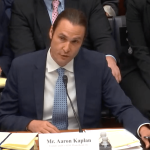Wang Ying/Xinhua via Getty Images
- The odds of a 20% correction in equities are increasing, Morgan Stanley said.
- The analysts called this the “Ice” scenario. They also laid out another outcome called “Fire.”
- “Ice” is if earnings revisions slow down while “Fire” is if the Fed begins to remove monetary accommodation.
- Sign up here for our daily newsletter, 10 Things Before the Opening Bell.
The slump in the benchmark S&P 500 on Monday offers a different sentiment from the market’s seven-month run since the beginning of this year.
It means the odds of a 20% correction in equities are increasing as the market transitions to the next stage of its cycle, Morgan Stanley said in a note published Monday.
Analysts – led by Michael Wilson – called this scenario “Ice,” which would happen if earnings revisions and higher-frequency macro datapoints slow down.
They laid out another near-term risk path for the stock market, called “Fire,” a more optimistic outlook that would occur if the Federal Reserve begins to remove monetary accommodation as the US economy overheats.
Ice, the more likely of the two outcomes, they said, would be “destructive” as it would translate to a 20% correction in the S&P 500, whereas Fire would only lead to a “modest and healthy” 10% correction.
“Will it be Fire or Ice? We don’t know, but the Ice scenario would be worse for markets and we are leaning in that direction,” the analysts said. “We think the mid-cycle transition will end with the rolling correction finally hitting the S&P 500.”
Still, analysts said they are bracing themselves in the event of an Ice outcome.
“We point to downside risk to earnings revisions, consumer confidence, and PMIs,” the analysts said. “These indicators are all highly correlated to S&P price on a rate of change basis, and thus we highlight what downside in these measures could mean for the S&P 500.”
As a result, the analysts said they continue to recommend more defensively oriented quality (healthcare and staples) to protect from the Ice scenario while “keeping a leg in financials” to participate in a Fire outcome.
“Many commentators and clients continue to point to the S&P 500 near all-time highs as a leading indicator and rationale for even higher prices ahead,” the analysts said. “However, in our view, the relative strength of the S&P 500 and Nasdaq 100 is further confirmation that the market understands the mid-cycle transition narrative.”
This mid-cycle transition, the analysts said, is “right on schedule,” especially given the fiscal stimulus during the pandemic.
Powered by WPeMatico





